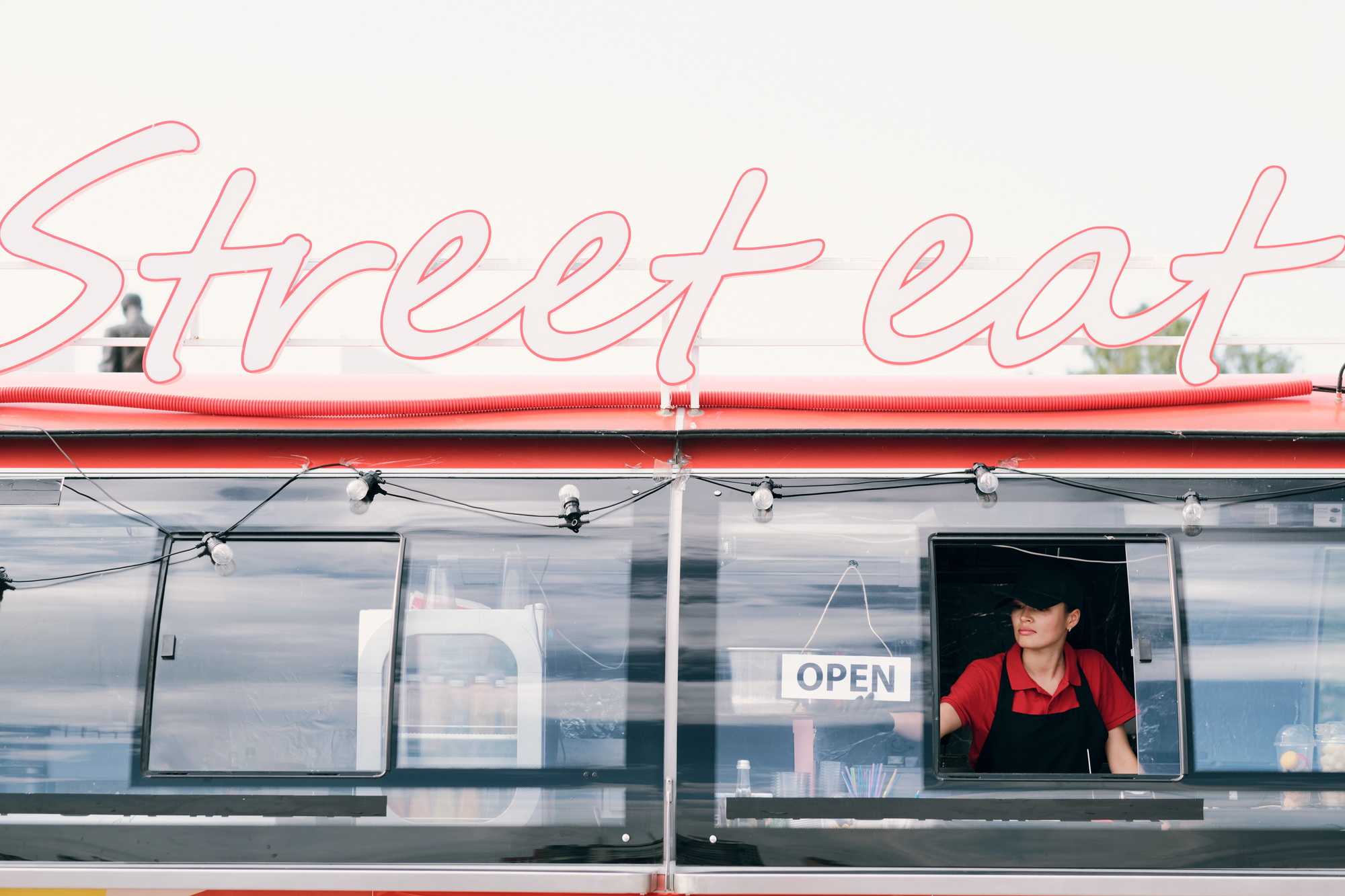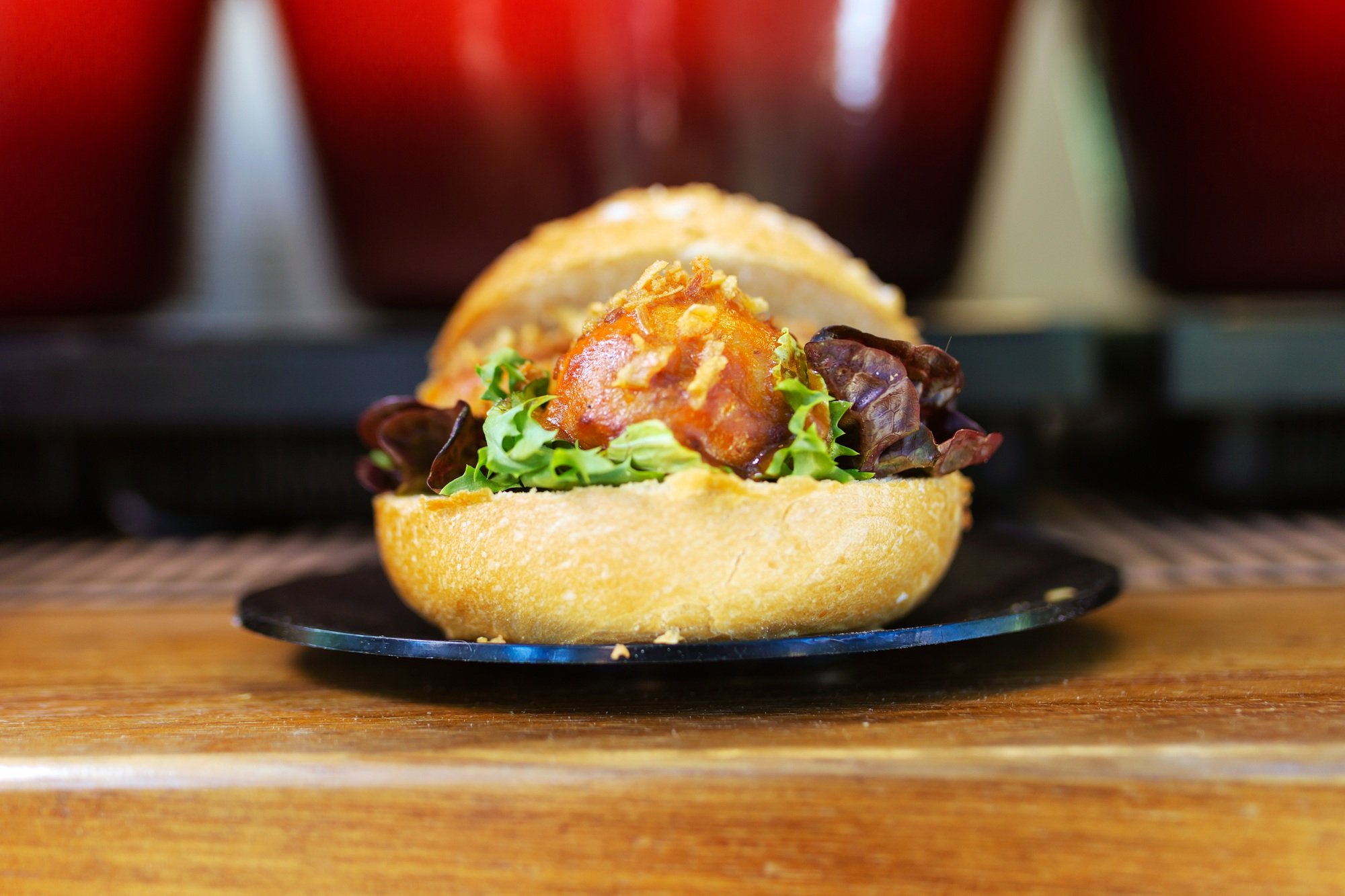Key Takeaways

- Importance of a Business Plan: A solid food truck business plan clarifies your vision, attracts investors, and prepares you to tackle challenges in the food industry.
- Key Components: Essential elements include an executive summary, business description, market analysis, marketing strategy, operations plan, financial projections, and appendices to strengthen your business structure.
- Market Research: Conduct thorough research to identify your target audience and analyze competitors, allowing you to adjust your menu and stand out in the local food truck scene.
- Niche and Menu Development: Choose a specific cuisine niche and create a concise, appealing menu that reflects your concept while ensuring dishes are easy to prepare and serve.
- Financial Planning: Accurately estimate startup costs, project revenue and expenses, and maintain a clear financial forecast to ensure the long-term sustainability of your food truck business.
- Marketing Strategies: Build an online presence through social media and engage with the local community to attract and retain customers, reinforcing your brand’s reputation.
Starting a food truck business can be an exciting venture that blends your culinary passion with entrepreneurial spirit. With the rise of food trucks, there’s never been a better time to dive into this dynamic industry. Whether you dream of serving gourmet tacos or artisanal donuts, having a solid business plan is crucial for your success.
A well-crafted food truck business plan not only outlines your concept and target market but also helps you navigate the challenges of launching and operating your mobile kitchen. From securing permits to managing finances, each step requires careful planning. In this article, you’ll discover essential elements to include in your business plan, ensuring you’re well-prepared to hit the road and serve up delicious meals to hungry customers.
Understanding The Food Truck Business Plan

A strong food truck business plan sets the foundation for your small business. It outlines your concept, identifies your target market, and develops strategies to navigate challenges.
Importance Of A Solid Business Plan
A solid business plan serves multiple purposes. It clarifies your vision and objectives, helping you stay focused. It also attracts investors and secures loans, demonstrating the viability of your food truck venture. Furthermore, a well-structured plan prepares you to tackle potential obstacles like permit acquisition and financial management. By defining your unique selling points and market strategies, you position your business for success in a competitive landscape.
Key Components Of A Food Truck Business Plan
Include the following key components in your food truck business plan:
- Executive Summary: Summarizes your business idea, goals, and target market.
- Business Description: Describes your food truck’s concept, theme, and cuisine style.
- Market Analysis: Analyzes industry trends, competitor performance, and customer demographics.
- Marketing Strategy: Details promotional methods, pricing strategies, and customer engagement plans.
- Operations Plan: Outlines daily operations, staffing needs, equipment requirements, and supply chain management.
- Financial Projections: Provides revenue forecasts, break-even analysis, and funding requirements.
- Appendices: Includes supporting documents like permits, menus, and vendor agreements.
Incorporating these components strengthens your business plan and contributes to a successful start in the food truck industry.
Market Research For Food Trucks

Market research forms a critical part of your food truck business plan. It ensures you understand the landscape of your local market, including conditions, regulations, and demographic factors.
Identifying Your Target Audience
Identifying your target audience requires analyzing who is likely to buy from your food truck. Factors to consider include age, income level, and dietary preferences. Surveys and social media interactions can provide valuable insights. Understanding these aspects helps you tailor your menu and marketing strategies effectively. For example, if you target college students, consider affordable, trendy food options.
Analyzing Competitors
Analyzing competitors informs you about existing food trucks in your area. Observe their menus, pricing, and locations to identify gaps in offerings. Differentiation can set you apart. If local competitors serve primarily burgers, a unique alternative, such as vegan tacos, might attract a different customer base. Keeping a close eye on your competitors’ successes and challenges can guide your business decisions and strengthen your market position.
Designing Your Food Truck Concept

Designing a successful food truck concept is essential for your small business. A clear and targeted approach can make a significant difference in attracting customers and standing out in a competitive market.
Choosing A Niche
Choosing a niche can define your food truck’s identity. Focus on a specific type of cuisine or a unique fusion of flavors. Successful examples include Roy Choi’s Kogi, which blends Korean and Mexican dishes. Identify what you love to cook and what addresses gaps in the current market. Conduct thorough market research to pinpoint trends in your area—this helps you cater to local preferences and sets your business apart.
Menu Development
Menu development plays a vital role in your food truck’s success. Create a concise and appealing menu that reflects your concept and niche. Incorporate dishes that are easy to prepare and serve from a mobile unit. Aim for a balance between popular items and unique offerings, ensuring consistency in taste and quality. Test your menu through pop-up events or soft launches to gather feedback. Adjust based on customer responses to refine your offerings and increase their likelihood of attracting a loyal customer base.
Financial Planning And Budgeting

Financial planning and budgeting form the backbone of your food truck business plan. Strong financial strategies ensure the success and sustainability of your small business.
Estimating Startup Costs
Estimating startup costs requires a comprehensive approach. Identify all expenses involved in launching your food truck. Key expenses include:
- Truck Acquisition: Purchase or lease a food truck that meets your needs.
- Kitchen Equipment: Invest in essential cooking appliances, utensils, and storage facilities.
- Permits and Licenses: Budget for local food handling permits, health department licenses, and vehicle registration.
- Food Supplies: Account for initial inventory, including ingredients and packaging materials.
- Fuel and Maintenance: Include costs for fuel, routine maintenance, and emergency repairs.
- Insurance: Allocate funds for liability, vehicle, and worker’s compensation insurance.
- Labor: Factor in wages, salaries, and any freelance or contract labor costs.
Creating a detailed list of these costs provides clarity and aids in securing financing options.
Projecting Revenue And Expenses
Projecting revenue and expenses helps you set realistic financial goals. Your projections must incorporate:
- Pricing Strategy: Determine your menu prices based on food costs, labor, and market conditions.
- Sales Forecast: Estimate daily sales by analyzing foot traffic, local events, and peak times.
- Operating Expenses: Include monthly costs, such as vehicle maintenance, food supplies, and labor.
Use budgeting apps to manage finances. These tools help track sales and expenses efficiently, generating necessary reports for informed decision-making. Establishing a clear financial forecast maintains healthy cash flow and prepares you for unexpected costs like repairs or health inspections.
Marketing Strategies For Food Trucks

Strong marketing strategies play a vital role in your food truck’s success. Focus on building an online presence and engaging with the local community.
Building An Online Presence
Establishing a robust online presence connects you with potential customers and broadens your reach. Create accounts on popular social media platforms like Instagram, Facebook, and TikTok. Post daily locations, new menu items, and engaging behind-the-scenes content to build excitement. Use eye-catching visuals and compelling captions to draw attention to your food offerings. Communicate what sets your food truck apart by sharing your unique story and culinary inspiration. Integrate traditional marketing techniques, such as flyers or local newspaper ads, alongside digital marketing efforts to create a comprehensive marketing approach.
Engaging With The Local Community
Engaging with the local community solidifies your brand’s presence. Participate in local events, festivals, and farmers’ markets to showcase your food and connect with potential customers directly. Build partnerships with local businesses, schools, and organizations to foster a sense of community. Offer promotions or discounts for community members to encourage repeat visits. Utilize community feedback to improve your offerings and adapt your menu based on local preferences. This approach not only generates goodwill but also reinforces your food truck’s reputation as a valued local small business.
Conclusion

Starting a food truck business can be a rewarding venture when you lay the groundwork with a solid business plan. By understanding your market and defining your unique concept, you can carve out a niche that resonates with your target audience.
Financial planning and effective marketing strategies are crucial for long-term success. Engaging with your community and building an online presence will help you attract and retain customers.
With careful preparation and a clear vision, you’re well on your way to turning your food truck dreams into reality. Embrace the journey and adapt as you grow, and you’ll find your place in this dynamic industry.
Frequently Asked Questions

What is a food truck business plan?
A food truck business plan is a detailed document outlining your business concept, target market, and strategies for success. It includes key components like an executive summary, market analysis, and financial projections. A solid plan is essential for attracting investors and navigating challenges.
Why is market research important for a food truck?
Market research helps you understand your local landscape, including regulations, customer demographics, and competition. This information is crucial for identifying your target audience and tailoring your offerings to meet their preferences, ultimately enhancing your chances of success.
How can I choose the right niche for my food truck?
Choosing the right niche involves selecting a specific cuisine or unique flavor fusion that appeals to your target market. Conduct thorough market research to understand local preferences and differentiate your food truck from competitors, ensuring you stand out in the industry.
What should I include in my menu?
Your menu should be concise and reflect your food truck concept while considering ease of preparation. Focus on dishes that appeal to your target audience, and gather feedback through pop-up events to refine your offerings and ensure customer satisfaction.
How do I estimate startup costs for my food truck?
To estimate startup costs, list all necessary expenses, including truck acquisition, equipment, permits, supplies, and labor. Research each cost and create a comprehensive budget to help secure financing and ensure a strong foundation for your business.
Why is financial planning important for a food truck?
Financial planning is vital for maintaining healthy cash flow and ensuring your food truck’s sustainability. By estimating costs, projecting revenues, and managing expenses, you can set realistic financial goals and prepare for unexpected challenges.
How can I market my food truck effectively?
To market your food truck, build a strong online presence through social media platforms. Engage with your local community by participating in events, partnering with businesses, and offering promotions. This approach helps attract new customers while encouraging repeat business.
What platforms should I use for online marketing?
Use popular social media platforms like Instagram, Facebook, and TikTok to reach potential customers. Share daily locations, menu updates, and engaging content to connect with your audience and keep them informed about your food truck’s offerings.
Image Via Envato



